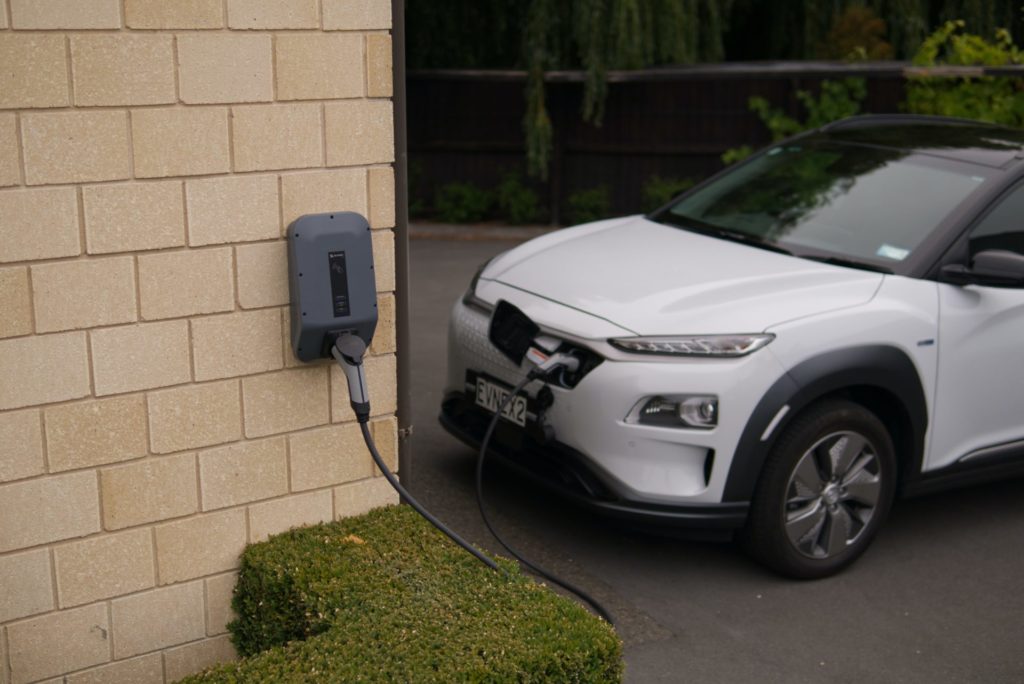Press Releases, News & Technical Documents

August 23, 2021
Addressing an Electrification Roadblock: Residential Electric Panel Capacity
Pecan Street’s new analysis explores the opportunities for policymakers and utilities to remove a significant barrier to residential electrification. By incentivizing electric service panel upgrades for existing homes and requiring larger capacity panels for new construction, we can clear the path for full residential electrification.

August 9, 2021
Course Correction: Residential Power Factor
To demonstrate the challenges and opportunities associated with total power factor, we used Pecan Street’s home energy use and PV data to explore the grid impacts of poor residential power factor and the system benefits of power factor correction. The analysis showed that by improving power factor of the homes in our sample, an additional current capacity of 12-16% to the distribution system can be achieved.

August 2, 2021
Pecan Street is Expanding its Residential Energy Research Network to Puerto Rico
The Alfred P. Sloan Foundation awarded Pecan Street a $100,000 grant to investigate how high-resolution residential energy data can inform the design and management of microgrids in Puerto Rico and enable the development of policies and economic structures for grid services from Behind-the-Meter (BTM) assets. This research will contribute to efforts to increase the resilience of Puerto Rico’s infrastructure in the face of increasing threat from natural disasters caused by climate change.

July 12, 2021
Utility Dive: Energy equity depends on data, and experts say there isn’t enough of it
Utility Dive’s Robert Walton recently spoke to Pecan Street Communications Director Colin Rowan about our effort to expand our volunteer research network in Detroit, MI.

June 22, 2021
Pecan Street to Develop Toolkit for Distributed Energy Resources Adoption at Historically Black Colleges and Universities
(AUSTIN, TX — June 22, 2021) The Cynthia & George Mitchell Foundation awarded Pecan Street Inc. a $40,000 grant to bring its unique data and research capabilities to developing a Distributed Energy Resources (DERs) Toolkit for Historically Black Colleges and Universities (HBCUs). Pecan Street will partner with Huston-Tillotson University in Austin to develop resources that support DER deployment on HBCU campuses to provide new revenue opportunities and support community resilience centers. The effort will produce an online DER planning and implementation toolkit geared towards the unique aspects of Texas HBCUs and technical support resources.

June 21, 2021
Grist: Your electric vehicle could become a mini power plant
Grist’s Maria Gallucci recently spoke to Pecan Street CEO Suzanne Russo and Pecan Street Board Member Michael Webber about the potential grid impacts of vehicle-to-grid (V2G) technology. Read a snippet of the article below or read the full article on Grist’s website.

June 14, 2021
University of Michigan Research Participant Agreement
Following is a participant agreement for Pecan Street’s current volunteer recruitment for a research project being conducted for Eaton Corporation.

May 18, 2021
National Science Foundation Awards Grant to Pecan Street for First-of-its-Kind Research on Regenerative Farming and Farming Communities
The National Science Foundation awarded its Smart and Connected Communities grant to Austin-based research organization Pecan Street Inc. The project team will explore opportunities and barriers for the adoption of regenerative farming practices, and seeks to better understand collective decision-making about land use management by regional farming communities.

May 3, 2021
New Analysis from Pecan Street Finds Opportunity for Utility Savings with Smart EV Charging
Pecan Street’s new Charging Smart whitepaper concludes that utilities can save up to 41% on serving their residential electric vehicle charging loads by deploying smart charging technologies. Charging Smart analyzes future residential EV charging scenarios to identify opportunities and challenges for the grid and makes policy recommendations for utilities on how to advance smart charging technologies that will unlock EV charging as a significant grid management resource tool.





